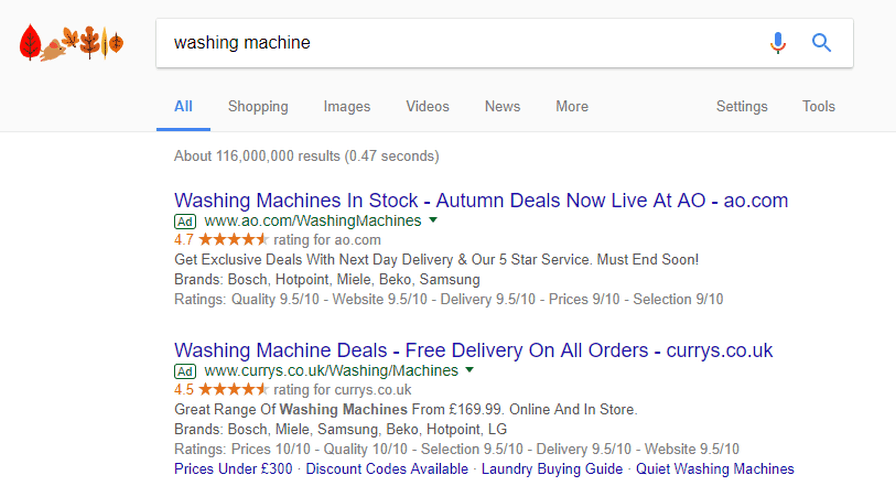A study of 2,000 Brits has revealed that 60% don’t know which search results are adverts on Google, despite increased regulation requiring them to be marked accordingly.
The findings came from content marketing agency Ad-Rank Media, which explored the main ad annoyances of today’s internet users. Despite the rise in internet usage – with one in 10 respondents claiming to browse over 50 websites a day – the majority could still not differentiate between a genuine and paid search ad.
“I find this statistic surprising, given the widespread usage of Google and how often they are featured in the press,” commented Ad-Rank Media’s managing director, Chad Harwood.
“Google used to highlight paid for results in highlighted boxes however in recent times the results look very much like non-paid for listings, apart from the small text box containing the abbreviation ‘Ad’.”
While you could argue that the ads are indeed signposted, with Google representing the UK’s largest ad player – set to generate £4.43 billion this year the bulk of which comes from AdWords – it raises the ethical question over how much of this is being generated by uninformed clicks.
On the other hand, playing with the subtleties in distinction between ads and organic content is a technique core to “native” advertising, a format some have lauded as a noble, more user-friendly replacement to ‘trashy’ banner ads by the end of 2017.
Google most recently took heavy fire for its Shopping Ads, fined €2.42 billion ($2.7 billion) by the European Commission having been accused of “skewing” search results in favour of its own ads, prompting swift debate over Google’s right to manipulate its product to the benefit of its own toplines.

